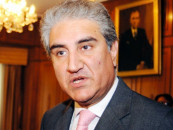Incest: Struggling to break the taboo
Life changes irrevocably for 10-year-old Asiya when she tells her mother that her maternal uncle had molested her.

Incest: Struggling to break the taboo
Her mother called her ‘immoral’ and regretted that Asiya was trying to create a breach between the siblings. 21 years later Asiya still suffers the psychological trauma and remains on medication to cope with it. She is not on speaking terms with her mother and her family. “Life would have been different had only my mother believed me,” she says. Asiya’s case was never reported to the authorities.
20-year-old Samin* has filed a case against her father-in-law and brothers-in-law who she said had raped her. Samin told her husband about it. He initially refused to believe her and then assured her that he would speak to his father and brothers. When Samin went to her mother, she took her to the police station. Only after repeated requests and applications to Inspector General Police Tariq Saleem Dogar did the police register an FIR against her husband, father-in-law and brothers-in-law under Section 376/B of the Pakistan Penal Code.
In Punjab 21 incest cases have been reported since 2008. War Against Rape (WAR) coordinator Sidra Humayun said that in most cases complaints were not registered. Even where cases are registered people do not believe the incest survivors. “We fear that incidents do occur that never come to our attention,” said Humayun. “The accused is shielded mostly by the victim’s own family who cannot accept the truth. Everyone, including the police and at times the courts, doubt and blame the victim,” she said.
According to the data compiled by WAR, seven cases of incest each were reported in 2008, 2009 and so far in 2010. The cases have been reported from Faisalabad, Jhelum, Raiwind, Kasur, Lahore, Daska, Gujranwala, Lala Musa, Sheikhupura and Pattoki.
“It’s not like incest is peculiar to Pakistan. It happens everywhere in the world. However, culprits don’t walk away everywhere without any punishment,” Humayun said. She said that the WAR was trying to create awareness so that people could support the victim and that the stigma should dissipate.
Hina Hafeezullah Ishaq, a lawyer who has worked on incest cases, said that the cases were dealt under Section 376 which deals with rape. “There is no specific legal provision for incest cases. … It should be treated differently,” she said. Ishaq said that a column can be introduced to deal with incest cases under Section 376. She said that it was difficult for the victim to testify in front of the accused who is her relative. She recommended that the court hold in camera proceedings or at least there be a curtain between the parties.
A senior police official said, “There is always a chance of fabrication. It has happened in several instances. However, we investigate all complaints. We do our best.” He went on to say that it was inaccurate to suggest that the police discouraged victims from filing complaints. “Several cases are currently before court only because we investigated and registered FIRs. We do what we can to protect the victim.”
The Sociology Department head at a leading university said that publishing research on this topic would be counterproductive. “In an Islamic society this issue would create a disturbance. Nothing positive would come out of it,” he said. He said that is was not possible to have accurate data on incest. As a result the conclusions reached would not be authentic. “You can certainly help victims individually but one should not make these things public,” he added.
Mirat Gul, a clinical psychologist who has worked with incest survivors, said that therapists had to win their confidence. “They test you. ...Their faith in relations is shattered and they suffer from intense trauma.” Gul recommended that incest survivors should generally not be touched even by their closest relatives as they have suffered betrayal at the hands of someone who was close to them. Instead, relatives should wait for them to initiate contact.
“We need to educate our kids that if they don’t like how someone touches them then they must tell us. Awareness is very important,” she said.
The names have been changed to protect the identity of victims
Published in The Express Tribune, October 24th, 2010.



















COMMENTS
Comments are moderated and generally will be posted if they are on-topic and not abusive.
For more information, please see our Comments FAQ